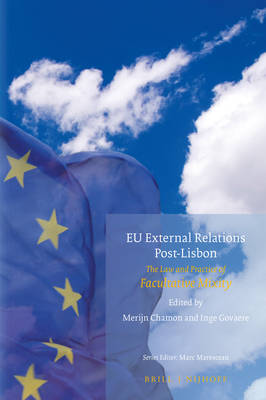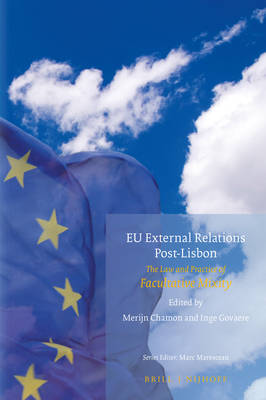
- Afhalen na 1 uur in een winkel met voorraad
- Gratis thuislevering in België vanaf € 30
- Ruim aanbod met 7 miljoen producten
- Afhalen na 1 uur in een winkel met voorraad
- Gratis thuislevering in België vanaf € 30
- Ruim aanbod met 7 miljoen producten
Zoeken
EU External Relations Post-Lisbon
The Law and Practice of Facultative Mixity
€ 320,95
+ 641 punten
Omschrijving
Despite the Lisbon Treaty reforming the EU Treaty provisions on external relations, it was argued at the time of the Treaty's entry into force that 'mixity was here to stay'. While this has indeed proven to be the case, the Court of Justice's jurisprudence has nonetheless redrawn the contours within which mixity can thrive and for the first time has confirmed the existence of 'facultative mixity'. In light of these significant post-Lisbon developments the volume aims to clarify the law and policy of facultative mixed agreements in the EU's treaty practice and this not only from the perspective of EU (constitutional) law itself but also from the perspective of the EU Member States' legal systems, that of the EU's third country treaty partners and that of public international law itself.
Specificaties
Betrokkenen
- Uitgeverij:
Inhoud
- Aantal bladzijden:
- 470
- Taal:
- Engels
- Reeks:
- Reeksnummer:
- nr. 16
Eigenschappen
- Productcode (EAN):
- 9789004421974
- Verschijningsdatum:
- 9/07/2020
- Uitvoering:
- Hardcover
- Formaat:
- Genaaid
- Afmetingen:
- 157 mm x 236 mm
- Gewicht:
- 793 g

Alleen bij Standaard Boekhandel
+ 641 punten op je klantenkaart van Standaard Boekhandel
Beoordelingen
We publiceren alleen reviews die voldoen aan de voorwaarden voor reviews. Bekijk onze voorwaarden voor reviews.







